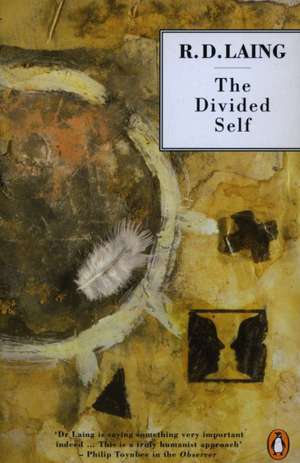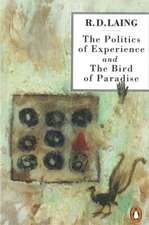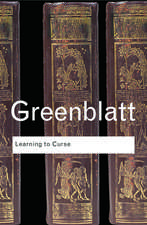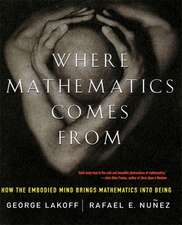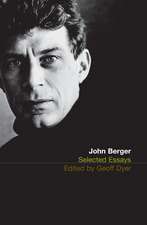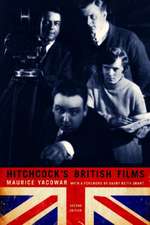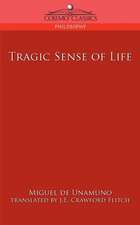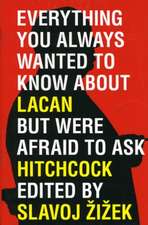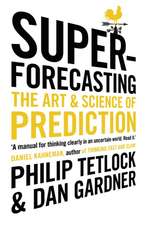The Divided Self: An Existential Study in Sanity and Madness
Autor R.D. Laingen Limba Engleză Paperback – 31 iul 1965 – vârsta de la 18 ani
Dr. Laing's first purpose is to make madness and the process of going mad comprehensible. In this, with case studies of schizophrenic patients, he succeeds brilliantly, but he does more: through a vision of sanity and madness as 'degrees of conjunction and disjunction between two persons where the one is sane by common consent' he offers a rich existential analysis of personal alienation. The outsider, estranged from himself and society, cannot experience either himself or others as 'real'. He invents a false self and with it he confronts both the outside world and his own despair. The disintegration of his real self keeps pace with the growing unreality of his false self until, in the extremes of schizophrenic breakdown, the whole personality disintegrates.
| Toate formatele și edițiile | Preț | Express |
|---|---|---|
| Paperback (2) | 57.47 lei 24-30 zile | +19.31 lei 4-10 zile |
| Penguin Books – 27 ian 2010 | 57.47 lei 24-30 zile | +19.31 lei 4-10 zile |
| Penguin Books – 31 iul 1965 | 97.52 lei 3-5 săpt. |
Preț: 97.52 lei
Nou
Puncte Express: 146
Preț estimativ în valută:
18.66€ • 19.53$ • 15.53£
18.66€ • 19.53$ • 15.53£
Carte disponibilă
Livrare economică 10-24 martie
Preluare comenzi: 021 569.72.76
Specificații
ISBN-13: 9780140135374
ISBN-10: 0140135375
Pagini: 224
Dimensiuni: 130 x 198 x 14 mm
Greutate: 0.16 kg
Ediția:Revised
Editura: Penguin Books
Locul publicării:United Kingdom
ISBN-10: 0140135375
Pagini: 224
Dimensiuni: 130 x 198 x 14 mm
Greutate: 0.16 kg
Ediția:Revised
Editura: Penguin Books
Locul publicării:United Kingdom
Cuprins
The Divided Self Preface to the Original Edition
Preface to the Pelican Edition
Part One
1. The existential-phenomenological foundations for a science of persons
2. The existential-phenomenological foundations for the understanding of psychosis
3. Ontological insecurity
Part Two
4. The embodied and unembodied self
5. The inner self in the schizoid condition
6. The false-self system
7. Self-consciousness
8. The case of Peter
Part Three
9. Psychotic developments
10. The self and the false self in a schizophrenic
11. The ghost of the weed garden: a study of a chronic schizophrenic
References
Index
Preface to the Pelican Edition
Part One
1. The existential-phenomenological foundations for a science of persons
2. The existential-phenomenological foundations for the understanding of psychosis
3. Ontological insecurity
Part Two
4. The embodied and unembodied self
5. The inner self in the schizoid condition
6. The false-self system
7. Self-consciousness
8. The case of Peter
Part Three
9. Psychotic developments
10. The self and the false self in a schizophrenic
11. The ghost of the weed garden: a study of a chronic schizophrenic
References
Index
Recenzii
"Dr. Laing is saying something very important indeed. . . . This is a truly humanist approach."
—Philip toynbee in the Observer
"It is a study that makes all other works I have read on schizophrenia seem fragmentary. . . . The author brings, through his vision and perception, that particular touch of genius which causes one to say Yes, I have always known that, why have I never thought of it before?'"
—Journal of Analytical Psychology
—Philip toynbee in the Observer
"It is a study that makes all other works I have read on schizophrenia seem fragmentary. . . . The author brings, through his vision and perception, that particular touch of genius which causes one to say Yes, I have always known that, why have I never thought of it before?'"
—Journal of Analytical Psychology
Notă biografică
R.D. Laing, one of the best-known psychiatrists of modern times, was born in Glasgow in 1927 and graduated from Glasgow University as a doctor of medicine. In the 1960's he developed the argument that there may be a benefit in allowing acute mental and emotional turmoil in depth to go on and have its way, and that the outcome of such turmoil could have a positive value. He was the first to put such a stand to the test by establishing, with others, residences where persons could live and be free to let happen what will when the acute psychosis is given free rein, or where, at the very least, they receive no treatment they do not want. This work with the Philadelphia Association since 1964, together with his focus on disturbed and disturbing types of interaction in institutions, groups and families, has been both influential and continually controversial. R.D. Laing's writings range from books on social theory to verse, as well as numerous articles and reviews in scientific journals and the popular press. His publications are: The Divided Self, Self and Others, Interpersonal Perception (with H. Phillipson and A. Robin Lee), Reason and Violence (introduced by Jean-Paul Sartre), Sanity, Madness and the Family (with A. Esterson), The Politics of Experience and The Bird of Paradise, Knots, The Politics of the Family, The Facts of Life, Do You Love Me?, Conversations with Children, Sonnets, The Voice of Experience and Wisdom, Madness and Folly.
R.D. Laing died in 1989. Anthony Clare, writing in the Guardian, said of him: "His major achievement was that he dragged the isolated and neglected inner world of the severely psychotic individual out of the back ward of the large gloomy mental hospital and on to the front pages of influential newspapers, journals and literary magazines . . . Everyone in contemporary psychiatry owes something to R.D. Laing."
R.D. Laing died in 1989. Anthony Clare, writing in the Guardian, said of him: "His major achievement was that he dragged the isolated and neglected inner world of the severely psychotic individual out of the back ward of the large gloomy mental hospital and on to the front pages of influential newspapers, journals and literary magazines . . . Everyone in contemporary psychiatry owes something to R.D. Laing."
